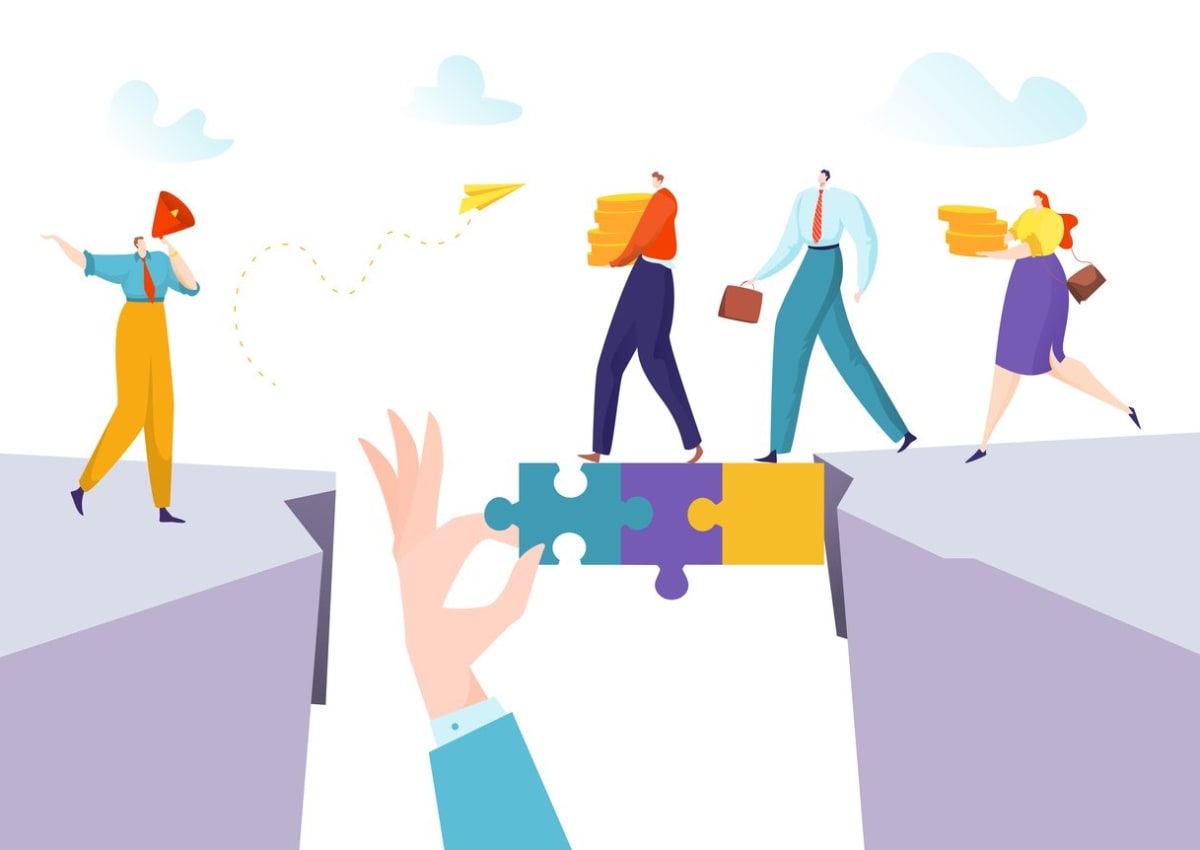Imagine a world where every team member works together seamlessly, exchanging ideas, solving problems, and celebrating successes. Sounds ideal, right? The key to making this dream a reality lies in developing strong collaboration skills. In this blog post, we will delve into the importance of collaboration in the modern workplace, discuss the essential components of successful teamwork, and provide practical tips for enhancing your collaborative abilities.
Key takeaways
- Collaboration skills are essential for individual growth and team success in the modern workplace.
- Effective collaboration enables diverse perspectives, improved problem-solving, and increased employee satisfaction.
- Collaboration involves active listening, communication, emotional intelligence, trust & accountability building to achieve shared goals.
Why collaboration skills matter
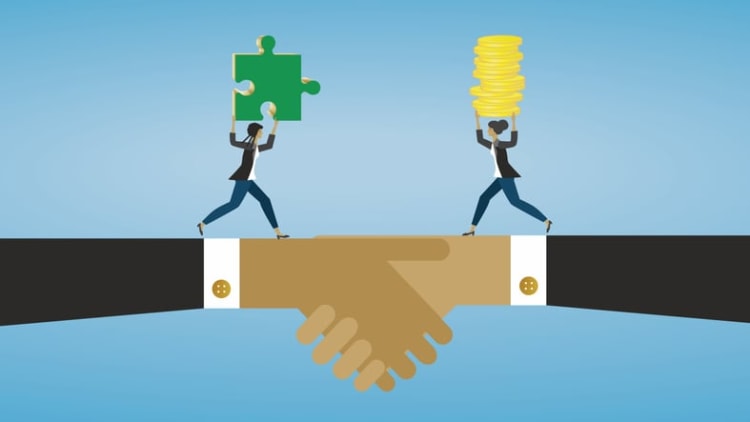
In the ever-evolving workplace, collaboration skills have become increasingly important. The ability to work effectively and harmoniously with others is essential for success in today’s fast-paced, interconnected world. That’s why collaboration skills important are not only for individual growth but also for the overall success of a team.
Studies show that honing collaboration skills can boost team performance and streamline the collaborative process. Moreover, having a positive outlook towards change and compromise is critical for successful workplace collaboration skills.
The evolving workplace
The modern workplace is shifting towards a more collaborative environment, where employees are required to work together and communicate effectively. As companies embrace remote work, digital communication, and diverse teams, the need for strong workplace collaboration skills has never been more apparent.
Employees who cultivate these vital skills are better equipped to navigate the complexities of the changing workplace and excel in their careers.
Benefits of effective collaboration
Effective collaboration offers numerous benefits, such as diverse perspectives, improved problem-solving capabilities, and heightened employee contentment. Embracing diverse perspectives can provide unique insights and generate innovative solutions, contributing to a truly collaborative workplace.
Moreover, productive team collaboration relies heavily on proficient team communication to keep all members aligned and working towards a shared objective. When employees feel engaged and valued, they are more likely to contribute their best ideas and work towards the team’s success.
Celebrating collaboration and recognizing the contributions of team members not only boosts morale but also reinforces the importance of teamwork and collaboration skills in achieving the company’s goals.
Key components of collaboration skills
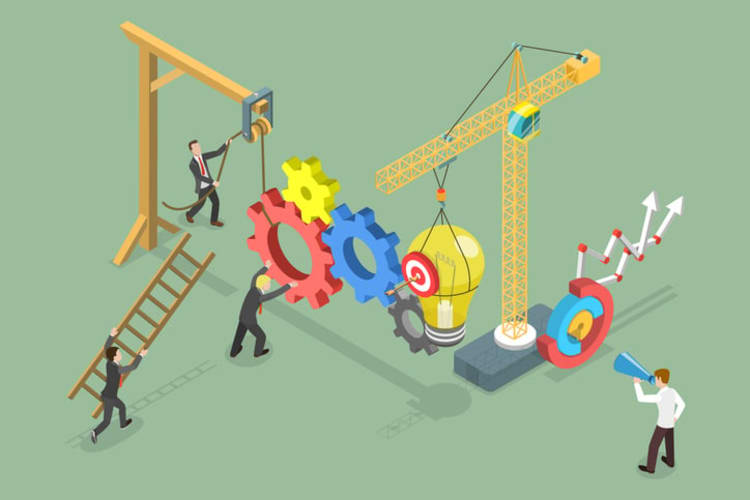
Collaborative skills encompass a range of abilities that facilitate teamwork and cooperation. An effective collaborator must possess a variety of capabilities, including:
- Listening skills
- Effective communication
- Emotional intelligence
- Openness to new concepts
- Accountability
Team collaboration skills ensure that team members can articulate their ideas clearly, understand and respect each other’s perspectives, and work together towards a common goal.
Communication
Successful collaboration hinges on clear and succinct communication. It ensures that everyone is on the same page and working towards the same objectives. Communication skills, including verbal communication, are indispensable in a cooperative environment, as team members must be able to articulate their ideas to one another for others to partake and cooperate. Good verbal and written communication helps prevent misunderstandings and keeps the team focused on their goals.
Beyond expressing personal ideas, proficient communication also necessitates active listening and comprehension. By attentively listening to others and seeking clarification when needed, team members can better understand each other’s perspectives and objectives, leading to more fruitful collaboration.
Active listening
Successful collaboration highly depends on active listening. It involves understanding, clarifying, and summarizing what others are saying, ensuring that everyone’s perspectives are considered and valued.
Active listening allows team members to grasp each other’s viewpoints, rectify communication inconsistencies, and enhance collective effectiveness.
Emotional Intelligence
Successful collaboration greatly relies on emotional intelligence, the capacity to regulate personal emotions and identify those of others. High emotional intelligence enables team members to work together harmoniously, respond productively to challenges, and strengthen relationships with coworkers.
Teams with emotional intelligence are known to have increased productivity, improved collaboration, and enhanced communication.
Building trust and accountability
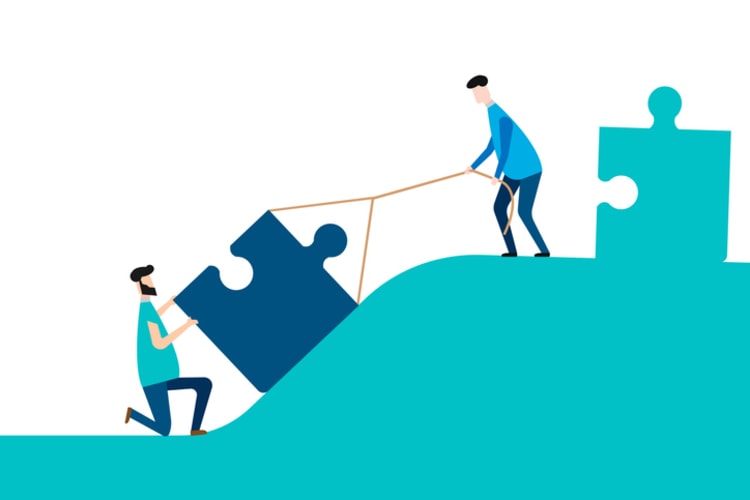
Trust and accountability forge a supportive and reliable team environment, and are indispensable for successful collaboration. Establishing trust within a team involves transparency, open communication, and keeping promises, while fostering accountability ensures that team members take responsibility for their actions and contribute to the team’s success.
Establishing trust
Creation of a positive and collaborative atmosphere pivots on the establishment of trust within a team. Trust is built through transparency in decisions, being receptive to feedback, and ensuring that commitments are fulfilled.
When team members trust each other, they feel more comfortable sharing their ideas, taking risks, and making decisions together, ultimately leading to more effective collaboration.
Fostering accountability
For team members to take responsibility for their actions and contribute to the team’s success, fostering accountability is a necessity. Teams can facilitate accountability by establishing clear objectives, delivering constructive feedback, and recognizing successful efforts.
By holding each other accountable for their actions and performance, team members can work together more effectively and efficiently.
Enhancing team dynamics
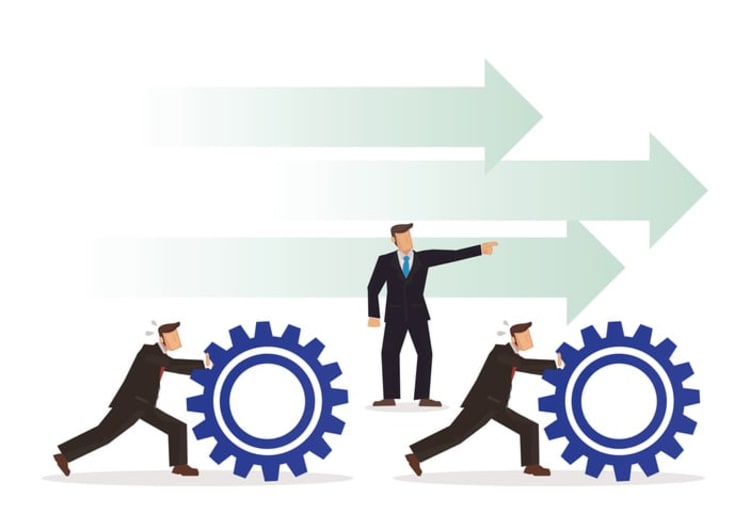
Successful collaboration is largely dependent on the enhancement of team dynamics. Embracing diversity, resolving conflicts, and celebrating successes are all important aspects of fostering a collaborative and inclusive team environment.
These factors can improve team dynamics and ensure that team members work together effectively.
Encouraging diversity
Encouraging diversity within a team leads to a variety of perspectives and ideas, fostering creativity and innovation. Diverse teams are more likely to generate unique insights and innovative solutions, contributing to a truly collaborative workplace.
By embracing diversity, teams can benefit from the different skills, experiences, and viewpoints of their members, ultimately resulting in more effective collaboration.
Conflict resolution
Maintenance of a positive and collaborative team environment requires adept conflict resolution skills. Disagreements are inevitable in any team setting, but addressing them constructively can help maintain team harmony and keep everyone focused on their goals.
By learning to address conflicts in a positive and constructive manner, team members can work together more effectively and efficiently.
Celebrating successes
Celebrating team successes not only boosts morale but also reinforces the importance of collaboration. Recognizing and acknowledging the accomplishments of team members helps create a positive atmosphere, motivating everyone to continue working together towards their goals.
By celebrating successes, teams can stay motivated and maintain a strong sense of unity and collaboration.
Utilizing collaboration tools and techniques
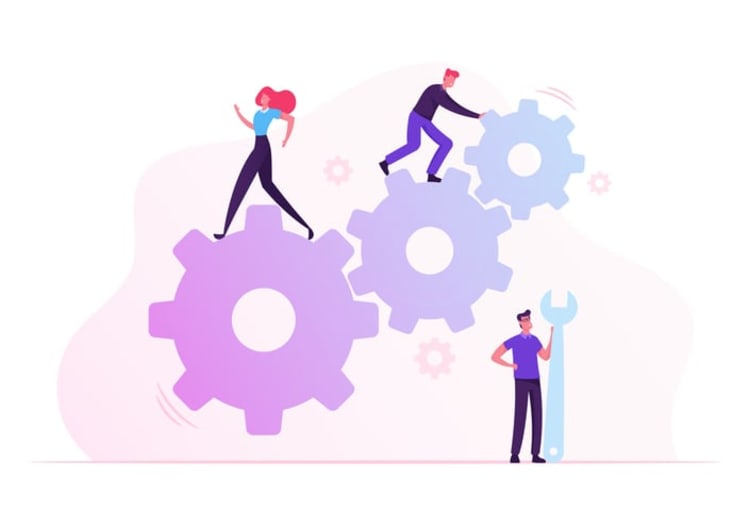
Utilizing collaboration tools and techniques can streamline teamwork and improve overall efficiency. Project management tools, communication platforms, and brainstorming techniques are all valuable resources that can enhance collaboration and help teams work together more effectively.
Explore virtual workspace software
As remote and hybrid work models become the norm for many organizations, the challenges associated with maintaining strong team collaboration, productivity and morale are becoming more apparent.
To address these challenges, many teams are adopting virtual workplace software. Kumospace stands out as the premier provider in this sector, offering a virtual solution that mimics the advantages of a physical workspace. These virtual work environments foster better collaboration and result in increased productivity. Discovery how Connexus, a 3rd-party contact center service provider, saw a 10% increase in productivity by adopting virtual workspace software.
Project management tools
Project management tools, such as Asana or Trello, help teams stay organized and on track with tasks and deadlines. These tools enable teams to assign tasks, establish deadlines, monitor progress, and collaborate on projects, providing visibility into the progress of tasks and projects.
Employing project management tools enables teams to spot potential issues and implement corrective measures, thereby ensuring successful and timely completion of projects.
Communication platforms
Communication platforms, like Kumospace, Slack or Microsoft Teams, facilitate seamless communication and collaboration among team members. These platforms enable team members to quickly and easily exchange messages, information, documents, and ideas, promoting real-time communication and expediting the decision-making process.
With the aid of communication platforms, teams can maintain connectivity and enhance their efficiency.
Brainstorming techniques
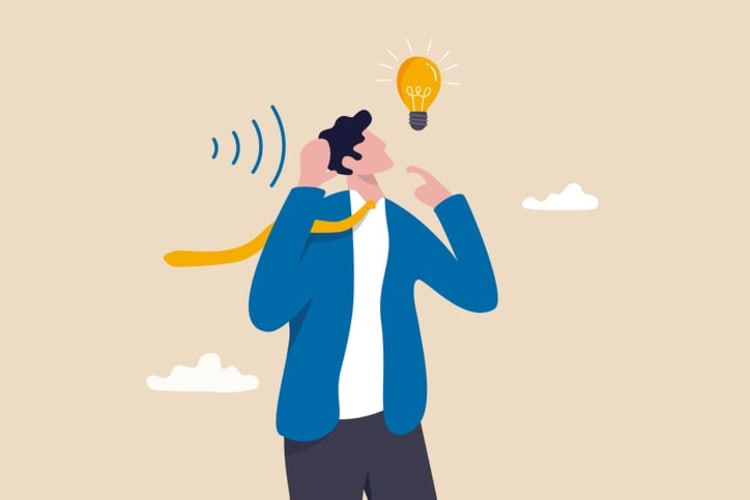
Brainstorming techniques, such as mind mapping or the Six Thinking Hats, encourage creative thinking and problem-solving within a team. These techniques provide a platform for team members to generate new ideas, discover solutions, and develop creative approaches to issues.
The use of brainstorming techniques can stimulate innovation and collaboration within teams, thereby fostering more effective problem-solving and decision-making.
Developing your collaboration skills
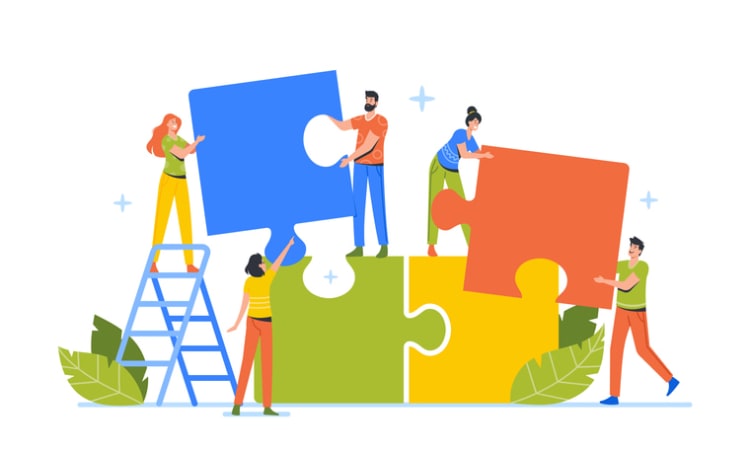
The development of collaboration skills is a continuous process entailing self-assessment, perpetual learning, and feedback acquisition from others to build collaborative skills, as collaboration skills develop over time.
By focusing on these areas, individuals can continuously improve your collaboration skills and become more effective team members.
Self-assessment
Self-assessment is a valuable tool for identifying strengths and weaknesses in collaboration. By evaluating their own performance and contributions to the team, individuals can pinpoint areas that require improvement and take accountability for their actions.
Self-assessment encourages self-awareness, accountability, and ongoing learning, which are fundamental for successful collaboration.
Ongoing learning
Continual improvement of collaboration skills necessitates ongoing learning. By participating in:
- Workshops
- Online courses
- Webinars
- Other available resources
Individuals can stay up-to-date with the latest industry trends, technologies, and best practices.
This continuous learning process promotes a culture of growth and development, leading to greater job satisfaction and motivation among team members.
Seeking feedback
Seeking feedback from team members and supervisors provides valuable insights into areas for improvement and growth. By soliciting feedback and acting upon it, individuals can enhance their collaboration skills and become more effective contributors to their teams.
This process fosters a culture of trust and accountability, helping teams work together more productively and efficiently.
Real-life examples of collaboration in action
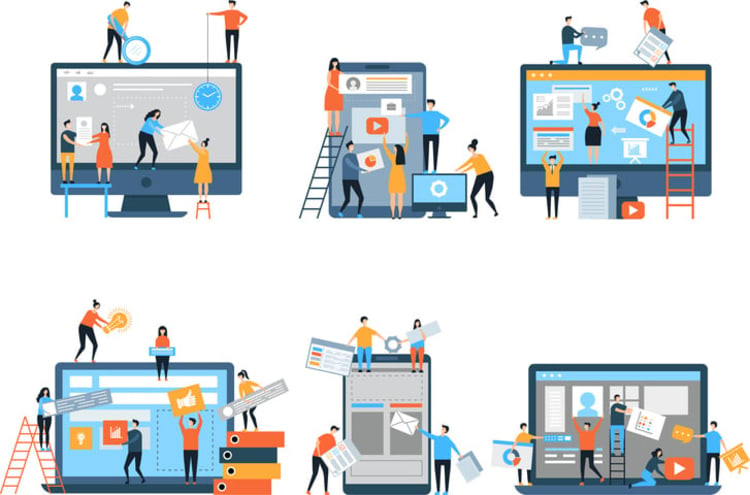
Real-life examples of collaboration in action demonstrate the power of teamwork and the importance of collaboration skills. For instance, consider a team of engineers working together to design and build a complex structure. Each team member contributes their unique expertise and ideas, while collaborating to solve problems and make decisions. This collaborative effort leads to the successful completion of the project, showcasing the power of teamwork.
Another example can be seen in the world of sports, where players must work together to achieve a common goal. A basketball team, for example, relies on effective communication, trust, and collaboration to execute plays, make adjustments, and ultimately win games. These real-life examples illustrate the importance of fostering strong collaboration skills and the impact they can have on the success of a team.
Overcoming common collaboration challenges

Overcoming common collaboration challenges ensures that teams can work together effectively and efficiently. One common challenge is over-collaboration, where team members spend too much time collaborating and not enough time working independently. To address this issue, teams can set clear boundaries and expectations, allowing for both collaborative and independent work.
Another common challenge is communication barriers, which can arise due to different communication styles, language barriers, or remote work arrangements. To overcome this obstacle, teams can utilize collaboration tools and techniques, such as project management tools and communication platforms, to ensure that everyone stays connected and informed.
Teams can enhance their collaboration and increase their effectiveness by recognizing and strategizing to surmount obstacles. This proactive approach to addressing collaboration challenges not only enhances team dynamics but also contributes to the overall success of the organization.
Summary
In conclusion, collaboration skills are essential for success in today’s evolving workplace. By focusing on key components such as communication, active listening, and emotional intelligence, building trust and accountability within the team, and enhancing team dynamics, individuals can become more effective collaborators. Utilizing collaboration tools and techniques, engaging in ongoing learning, and seeking feedback from others can further improve collaboration skills. By overcoming common challenges and applying the strategies outlined in this blog post, teams can work together more effectively and efficiently, ultimately achieving greater success.
Frequently asked questions
Collaboration skills refer to the ability to effectively work with others to brainstorm, problem-solve and execute plans. These are highly sought-after soft skills in the workplace and are essential for successful team dynamics.
To demonstrate collaboration skills in the workplace, it is important to update your manager, recognize the contributions of others, make suggestions for improvement, diffuse tensions and promote inclusivity.
To build collaboration, communicate clearly, choose the right digital tools, go beyond comfort zones, find or become a mentor, and participate in team-building activities. Know your team and how they communicate, be realistic about timing, make room for mistakes, and keep in touch. Further, pinpoint and promote a purpose for collaboration, lead by example, celebrate diverse personalities, and offer rewards or incentives for collaboration.
Project management tools provide teams with the structure and visibility to collaborate more efficiently, allowing them to stay organized and on track with tasks and deadlines. These tools can help teams stay focused and productive, while also providing a platform for communication and collaboration. They can also help teams stay organized and on top of tasks and deadlines, ensuring that projects are completed on time and within budget.
Ongoing learning and staying abreast of the latest industry trends and best practices can help individuals develop better collaboration skills, resulting in increased job satisfaction and motivation.
